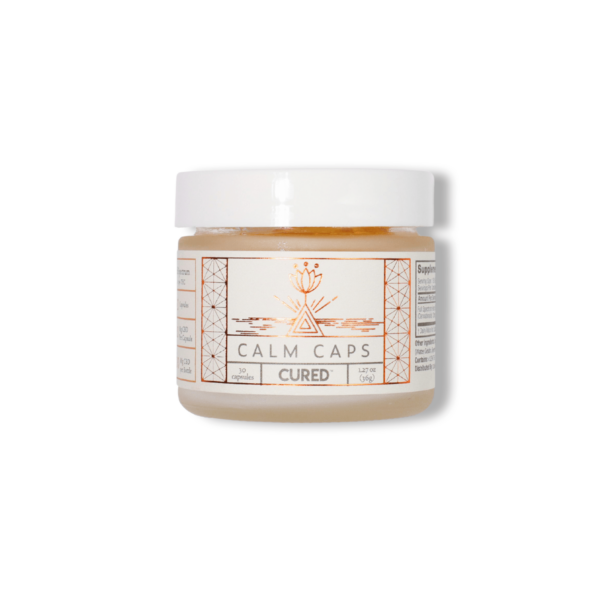Once commonly referred to as the pleasure molecule, dopamine has become an exciting area of scientific focus in recent years. Thanks to groundbreaking research, our understanding of this powerful neurotransmitter has evolved. No longer dubbed the simple, reward molecule, researchers have discovered the critical role dopamine plays in anticipation, learning, and memory.
What does this mean for us? Well, we now have cause to rethink the treatment of a wide variety of disorders related to imbalanced dopamine levels in the brain. And in the day to day, the expansive view of dopamine’s role also presents us with new reasons to naturally boost its production for increased motivation, improved learning, and more.
Understanding The Role of Dopamine in the Brain and Body
Dopamine is often referred to as the “molecule of wanting” due to its crucial role in motivation, reward, and anticipation. It plays a central role in the brain’s reward prediction error pathway, which is involved in reinforcing behaviors necessary for survival and promoting feelings of satisfaction.
When we encounter something rewarding or pleasurable, dopamine is released in specific regions of the brain, such as the nucleus accumbens. This release of dopamine creates a pleasurable sensation and reinforces the behavior that led to the reward. It creates a sense of anticipation and motivates us to seek out similar experiences in the future. And the surge of dopamine is greatest when we experience an even larger reward than predicted, like getting an A on an exam when we had been anticipating a B.
It’s worth noting, dopamine is involved in a wide range of functions beyond pleasure and reward. It also affects various aspects of our behavior, including motivation, focus, learning, decision-making, and physical movement. It helps to prioritize and initiate actions, promoting goal-directed behavior.
Dopamine’s focus is what’s next, as opposed to what is now. It drives our desire, ambition, and the pursuit of goals. It creates a sense of wanting and craving, urging us to take action to achieve the things we visualize, value, or find rewarding.
This wanting or desire is essential for our survival and success. It drives us to seek food, water, social connection, and other resources necessary for our well-being. It also fuels our aspirations, pushing us to achieve personal and professional goals.

Photo Credit: Unsplash
Four Ways to Naturally Boost Dopamine
Balancing (and boosting) dopamine is one powerful way to hack our biology, neurochemistry, and behavior. It’s also fairly easy and accessible. Try implementing one (or all) of these strategies to experience transformative mind-body shifts.
- Engage in Regular Exercise: Regular physical exercise has been shown to increase dopamine levels in the brain. Aim for at least 30 minutes of moderate to high-intensity exercise (such as weight lifting, jogging, dancing, or cycling) three times per week. This will simultaneously boost dopamine and improve overall mood and well-being.
- Consume Dopamine-Boosting Foods: Certain foods contain nutrients that support dopamine production. Foods rich in tyrosine, an amino acid precursor to dopamine, can help increase its levels in the brain. Examples include almonds, avocados, bananas, eggs, fish, and lean meats. Additionally, foods rich in antioxidants, such as blueberries, strawberries, and green tea, can help protect dopamine neurons in the brain.
- Practice Meditation and Mindfulness: Mindfulness meditation has been found to increase dopamine release in the brain. Regular practice of meditation helps reduce stress, improve focus, and enhance overall mental well-being. Find a quiet place, sit comfortably, and focus on your breath to cultivate mindfulness and reap its countless benefits.
- Set and Achieve Goals: Accomplishing goals and experiencing a sense of achievement can boost dopamine levels. Break down your larger goals into smaller, achievable tasks, and celebrate each milestone along the way. This process activates the reward system in your brain and stimulates dopamine release, motivating you to continue progressing.
Meditate Your Way to Improved Mood, Memory, and Mental Health
We’re big fans of meditation at CURED, so let’s take a closer look at the relationship between dopamine and a consistent mindfulness practice. Meditation has been shown to increase dopamine levels in the brain through several mechanisms:
- Stress Reduction: One way meditation boosts dopamine is by reducing stress levels. Chronic stress can lead to decreased dopamine activity in the brain. A consistent meditation practice can support the activation of the parasympathetic nervous system (the body’s relaxation response) and help lower stress hormones, like cortisol. This reduction in stress promotes a healthier dopamine response in the brain.
- Mindfulness and Attention: Meditation involves focusing attention and practicing mindfulness, which can positively impact dopamine levels. Mindfulness meditation trains you to observe your thoughts, emotions, and sensations without judgment or attachment. This practice enhances attentional control (i.e. focus) and improves the regulation of dopamine release. By sharpening your ability to sustain attention, meditation supports the optimal functioning of dopamine pathways in the brain. The cognitive benefits can be felt across learning and memory abilities.
- Brainwave Activity: Different forms of meditation, such as mindfulness or loving-kindness meditation, can regulate brainwave activity. Studies have shown that certain types of meditation increase alpha and theta brainwave activity, specifically. Alpha waves are associated with a relaxed and focused state, while theta waves are linked to deeper relaxation and creativity. These altered brainwave patterns can positively influence dopamine release and improve overall brain functioning.
- Default Mode Network (DMN) Activity: The default mode network is a brain network that is most active during restful states, when the mind is wandering, thinking about the future, or remembering past events. High activity in the DMN is associated with rumination, worry, and mental distress, while low activity is related to increased dopamine release. Meditation has been found to decrease DMN activity, leading to a more balanced dopamine response and improved mood.

Photo Credit: Unsplash
While this research is exciting, it’s important to note that the relationship between meditation and dopamine is complex and not fully understood. The effects of meditation on dopamine can vary across individuals, and more research is needed to fully explain the underlying mechanisms. However, the evidence does suggest that regular meditation practice can positively impact dopamine levels, contributing to improved well-being, mood, memory, and mental health










